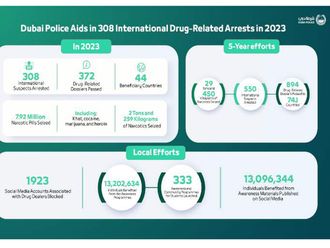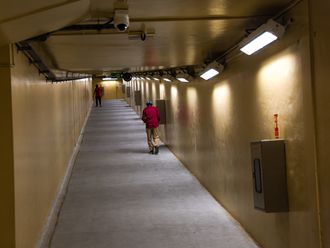Dubai: Succinylcholine chloride is a muscle paralysing agent that is used in surgery to relax muscles, enabling surgeons to make incisions easily.
The usual dose in surgical operations is 20 mg. Since it relaxes respiratory muscles too, in a surgery anaesthetists would maintain the respiration of the patient artificially.
If however the same dose is injected by a person without artificial respiration, it could kill the patient. It repeatedly stimulates and finally paralyses respiratory muscles when no artificial respiration is administered.
Succinylcholine mimics a natural chemical in the body, acetylcholine, which controls muscle movements.
It does not cause unconsciousness or anaesthesia and could make it impossible for the patient to communicate. The patient to whom the solution is given would be conscious, but unable to move or breathe.
In surgery, after a dose of about 0.3 to 1.1 mg per kg is administered into the vein, a neuromuscular blockage develops in about one minute in adults; maximum blockage may persist for about two minutes, after which recovery takes place within four to six minutes. However, very large doses may result in a more prolonged blockage.
Succinylcholine chloride is a white, odourless, slightly bitter powder and very soluble in water. It must be stored in a refrigerator to preserve potency and remains stable in acid conditions. The pH level of the solution in which it is used should have a pH level of 3.5, usually adjusted with hydrochloric acid.
While there is no antidote, the patient could be saved by being given artificial respiration in time.












